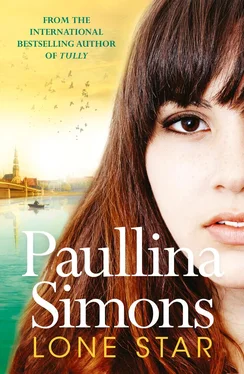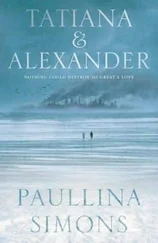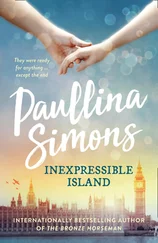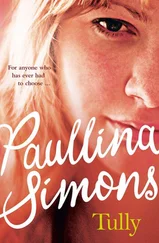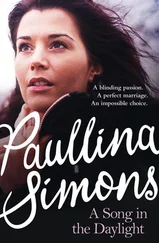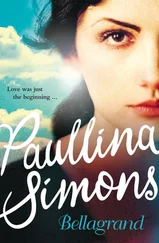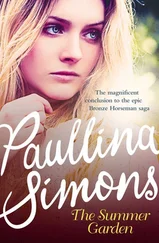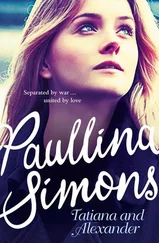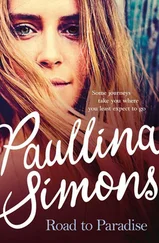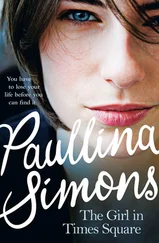“Blake’s so into you. He likes everything you’re into.”
“What do I care about junk hauling, or building things, or helping old people, or fixing band saws? Or fishing? And what does he care about Paris and museums, and classic literature, and pretty clothes?”
“There are other things …”
“Yes, we’ve done them.” Hannah sighed dramatically. “Do you think that boy will ever live away from his dad? He still helps him into the boat, for God’s sake. He wants to start a junk business. I mean, what am I going to do with someone like that?”
“He also wants to write a book,” said Chloe.
Hannah waved in dismissal. “He and a million others. Me, I want to travel the world. I want to learn three languages. I want to live in a big city. You and I both do. It can’t end with Blake any other way but this way.”
“But that’s the thing,” Chloe said, her gaze on the road. “It’s not ending. If you ended it with him, that’d be one thing. But you’re not.”
Hannah turned to Chloe, frowning disdain on her displeased face. “How do I do that? And then what? What do I do with us ?” She made a large air circle, embodying by the broad sweep not just herself and Blake, but Chloe and Mason too. “We are all four of us together every day. We have one life. If I break up with him, what happens to the four of us? Do you even think before you speak? I mean, could you break up with Mason?”
“I don’t want to.”
“But if you did?”
They didn’t talk for a while. The road was narrow, the pines tall, the ride long, what was there to say? Except what a hypocrite Chloe was, what a deceiver. She decided she would tell Hannah about San Diego on the way home, her heart falling through her abdomen at the thought of it.
Chloe underestimated the open and public heartbreak a man near retirement age could display on the walkways of Orono, near the river on the University of Maine campus, when his eighteen-year-old lover told him it had to end.
Chloe stayed as far back as possible. She couldn’t believe Hannah would do this on the avenue where students and faculty strolled on a warm May evening. But his reaction was so extreme that perhaps this was why Hannah had chosen the public square for his flogging; she had hoped he would keep it together. At first they walked arm in arm, overlooking the flowing waters, the mountains beyond. He smiled at her, squeezed her arm. They made quite a picturesque couple against the backdrop of the snow-capped Appalachians.
Hannah spoke. He stopped walking. He took his arm away. She gestured, in her small elegant way, and he stood, a pillar of incomprehension. Then he started to weep. Hannah stroked him, embraced him, talked and talked, a filibuster of consolation. Nothing helped the gray man become less stooped.
Chloe had to stop peeking at his despair. It was as if she had caught him in the shower, or them in a different sort of clinch. She became embarrassed, for herself, for him, for the passersby who slowed down, concerned at his distraught exhortations. He grabbed his chest, as if in the middle of heart failure.
After an hour he was still crying! And Hannah was still rubbing him, talking to him, gesturing far and wide.
Chloe understood nothing of this kind of emotion. Nothing. It seemed to her that logic must prevail in a grown man’s head when he spied himself standing in the middle of the college where he had tenure, bawling because his teenage lover had decided to move on. Not even move on, for Blake was the here and now, just … move sideways. Move back. Move away. How could the enormous common sense of that decision finally— finally! —not triumph over him?
Chloe had been keeping an eye on the time—the thing she usually had least of, next to money—but after ninety minutes her eyes left the watch permanently to pitch silent poison darts in Hannah’s direction, hoping her friend would sense Chloe’s own despair at the tedium of spying on a stranger’s excessive distress. Come on, wrap the whole thing up, put it in a doggy bag, take it home. Let’s go, let’s go, let’s go! Chloe kept silently shouting. LET’S GO!
There was pacing, but there was no departing.
A hundred and ten minutes. A movie now. First a tragedy, then a comedy, then a farce, now Shoah .
Wait. Something new was happening. The stooped old man nodded. He let Hannah hug him, pat him.
Unfounded optimism. There he was, crying again. He could barely stand on his grieving geriatric legs. Carefully Hannah helped him over to a bench, and sat down next to her soon-to-be-erstwhile lover, continuing to cajole and comfort him.

The girls had a three-hour ride back home.
“Did you see him?” Hannah asked.
Oh, I saw him all right. Saw him, heard him, memorized him. I could play him by heart on the piano, that’s how well I’ve studied him.
“Yes,” said Chloe.
How could she tell Hannah about college?
She couldn’t. And didn’t.
She wanted to ask if Hannah loved Blake half as much. Would she shed a quarter of Martyn’s tears when it came time to say goodbye to Blake? Would she miss him an eighth as deeply? What was it called when it wasn’t pain, but a fraction of pain? Grimly Chloe closed her hands on the wheel.
“What happens next, Chloe?”
“I don’t know, Hannah. What happens next?”
It was going to get dark soon. Her mother would be worried. Nothing to do but drive on. “Remember Darlene Duranceau?”
“Who could ever forget her? Why would you bring her up, of all people?”
Chloe shrugged. “I’m trying to make a point about what happens next.”
Blake and Mason had dismantled the woman’s overflowing garbage heap of house in Denmark, Maine, after she died. She had been a hoarder, hoarding even herself in the end. She kept eating and sitting, eating and sitting, and soon she got so big that she couldn’t move off her couch, and she just kept eating and eating and eating, using the couch not just as a bed and a dining table, but also as a toilet, and, eventually, as a grave.
It was winter when she died, and everyone had been snowed in for days. The local market couldn’t deliver Darlene’s groceries. When the roads were finally plowed, Barry the delivery boy brought Darlene her customary two boxes of Pringles and pretzels. Barry found her. Barry did not recover from this. He had been a shy clumsy kid in Chloe’s homeroom, but now he was on major meds, in therapy six days a week and home-schooled by Social Services.
The townies talked about nothing else. What was Darlene’s life like before she and the couch became one? What drama in her life had led her to the upholstered end? Was the end a consequence, an answer to a why? Or was it a catalyst? If everything you did led to everything else that would eventually happen, the question was: was Darlene Duranceau the beginning or the end?
After the coroner pronounced her dead, and it was time to remove her from the premises, the EMT workers discovered that she was stuck. From lack of movement, she had developed sores that festered, causing open wounds that oozed into the sofa, which then closed up around Darlene’s flesh like lichen to a rock. She had liquefied and then mummified into her furniture. The town cremated her with the couch. No one but the boys out in the schoolyard ever discussed how the funeral home fit Darlene and her Davenport into the relatively narrow opening of the cremation pyre.
How could Chloe add to Hannah’s chaos by confessing about California?
She wants to tell her, but she can’t.
She can’t.
And she doesn’t want to.
Читать дальше
